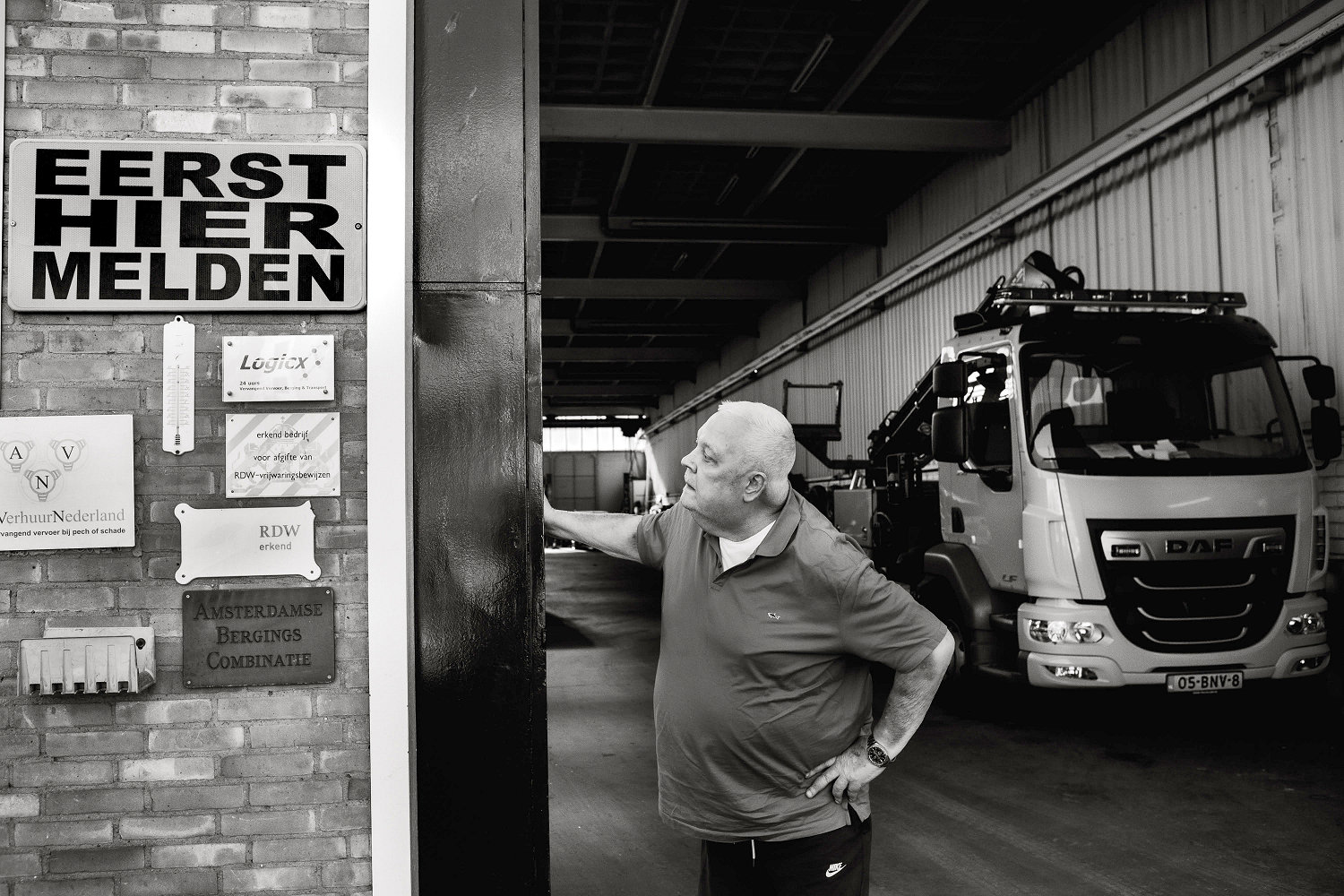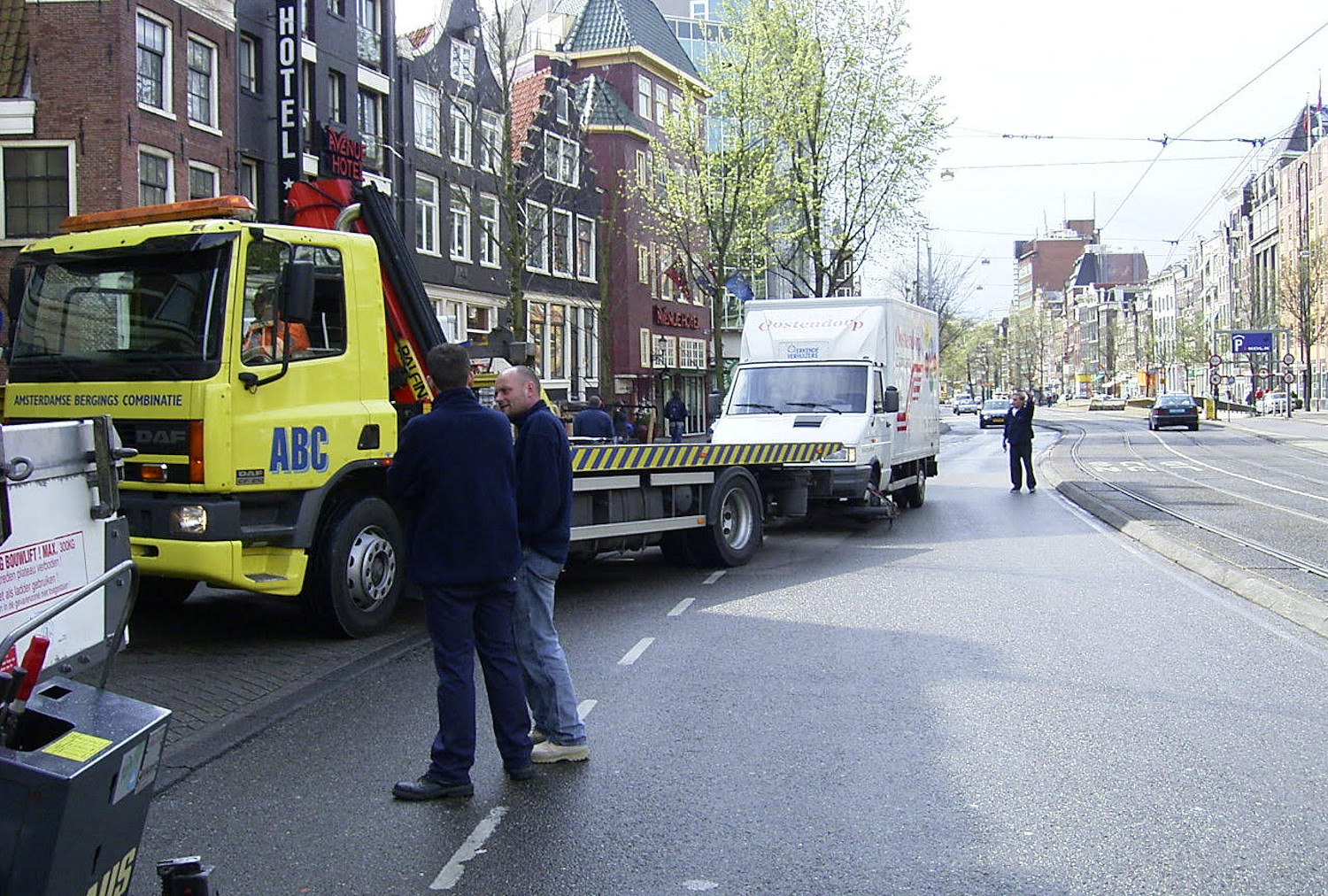Time to call it a day
Friday, 22 April 2022
André Bronkhorst (76), founder and managing director of the Amsterdamse Bergingscombinatie ('ABC'), is calling time on 38 turbulent years in the vehicle recovery business. ABC will be taken over by Hooikammer Berging of Staphorst on 1 May. Hooikammer will continue ABC's activities, joining forces with Van der Eng vehicle recovery in Heemskerk.

André Bronkhorst reflects on his achievements at the entrance to ABC at Kastrupstraat 6 in Amsterdam
André Bronkhorst began his career back in 1984 as an employee of Bergingscentrale Amsterdam ('BCA'), the vehicle recovery business run by his brother, Ruud. In 1990 he established his own business, with the name ABC, operating from premises on Kastrupstraat in Amsterdam's Sloterdijk area. ABC had no allocated operating district in the context of how the vehicle recovery market was shared between operators up to 1999. Its offices were situated in district NH132 (Amsterdam-West, Amsterdam Nieuw-West and the port area), where vehicle recoveries relating to accidents and parking violations were performed by BCA. So ABC decided to focus on the recovery of goods vehicles.
The company became the standing vehicle recovery operator for DAF dealer Truckland, removed broken-down dustbin lorries from the roads for the City of Amsterdam, recovered service buses for public transport operator NZH and towed away incorrectly parked tourist coaches from the centre of Amsterdam on behalf of parking enforcement officials. The latter of these activities was often possible without resorting to the use of a recovery vehicle. The drivers of tourist coaches often 'hid' their keys in the vehicle and ABC's recovery operators usually knew where to look. They would squeeze themselves through the roof hatch of the coach and then, the easy part, drive the coach out of the city. "That earned us another 900 guilders each time", said Bronkhorst.

ABC goes to the rescue of a broken down light commercial vehicle on the Nieuwezijds Voorburgwal in Amsterdam, on 8 April 2004
Bronkhorst tried to win the rights to a district of his own with work for the police and insurance companies. To do this, he joined forces with Wim van de Biesebos, another recovery operator in the same position, based in the north of Limburg. The only way a district could be allocated to them was where an existing district was sub-divided, something that established recovery operators objected to. Under those circumstances, all the business owners could do was to protest against the existing national market structure. They were assisted in this endeavour in 1998, when the Dutch Competition Act came into force. The system of dividing up the market that had until then been in existence was prohibited, and allocation of districts was subject to a tender procedure. Both ABC and Van de Biesebos were successful in the first tender procedure, in 1999, each being allocated a district for three years.
The following round of tenders saw the outbreak of a price war that ABC had no interest in fighting. The company withdrew to concentrate on work for specialist response centres: breakdown recovery, onward transportation and accident recovery on the secondary road network. With these sorts of activities under its belt, ABC was able to survive in the following years. Bronkhorst had hoped to be able to pass his business on to his right-hand man, Vikas Balasar. However, when he suddenly died in 2019, Bronkhorst decided to sell ABC.